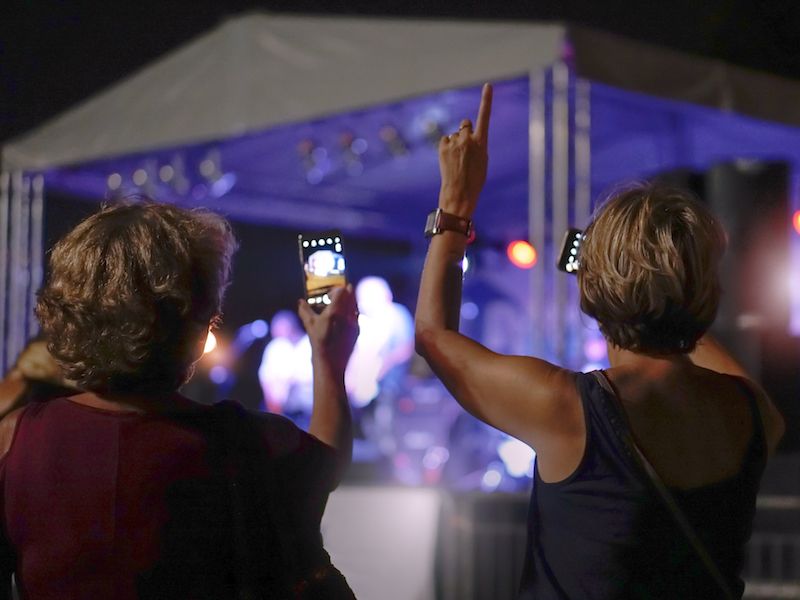Summer is finally here, and it’s time for all those things we’ve been getting excited about: swimming in the pool, visiting the beach, and a few activities that could harm your hearing. That’s right, summer holds a lot of unseen risks to your hearing, either from loud sounds or the external scenarios you may find yourself in. Any sounds above 80 decibels could hurt your hearing, while swimming in pools or other bodies of water can result in permanent hearing loss. To keep your ears safeguarded this summer, you need to be mindful of your surroundings and take precautions. Here are 6 of the summer’s concealed hearing risks.
When You go to Concerts, Use Ear Protection
Whether you’re at an indoor venue or an outside concert venue you still need to use hearing protection during live music. Concerts can reach that are over 90 decibels, even at outside concerts, which is within the danger zone of hearing loss. That’s why it’s always a smart strategy to use earplugs whether you’re seeing a concert indoors or outdoors. You can still hear the music with earplugs it’s just dampened a little bit. If you’re going to a concert with young kids, consider buying them a heavy duty pair of earmuffs since their ears are much more delicate than those of adults.
Loud Fireworks Can Damage Your
Honestly, there are a lot of reasons to avoid fireworks in the summer. We’re not talking about the specialized 4th of July fireworks show, we mean the backyard fireworks which every summer season cause many of injuries. Home fireworks achieve decibel levels of over 155 which can injure your ears on top of causing hand problems, blindness and home fires. This 4th of July, leave the fireworks to the professionals and enjoy the show from a safe and sound distance.
Loss of Hearing Can be Caused by Lawnmowers
If you love to take care of your lawn, mower, edger, and trimer are your best friends. But the muffled feeling in your ears is an indication that your ears have taken damage. That’s because the lawn tools, which are constantly loud, impact your hearing over time. If you’ve ever noticed lawn care pro’s, it is likely you have noticed them utilizing ear protection, next time you do yard work with loud power equipment, you should take a cue from them and wear earplugs or earmuffs.
How to Protect Your Hearing When You’re at Pools And Beaches
Millions of people suffer from swimmer’s ear every summer, which happens when the ear canal traps water that is high in bacteria. Swelling and painful earaches are the result when the bacteria infects the ear. It’s not only lakes and rivers that contain these bacteria, they can also be found in pools and hot tubs if they are not cleaned and treated thoroughly. As long as you have your ears treated by a hearing expert you will probably be fine, and no lasting loss of hearing will occur. To protect against swimmer’s ear, however, you will want to wear special swimming earplugs in the pool and get your pool water tested to make certain the chemical balance is safe.
Water Sports And Boats
Summer is a breath of freedom for those who love to be out on the water, smelling the salt air of the ocean or the fresh breeze of the lake. But, jet ski and boat engines can be loud,they can get up to over 100 decibels. Lasting hearing injury can be the result after about 15 minutes of exposure to that much noise. In this circumstance also, using a set of throw away foam earplugs is a smart idea.
Car Races Can Injure Your Ears
It doesn’t matter what kind of auto racing you like, midget, Formula 1, drag racing, motorcycle Formula 1. If you go to a lot of auto-races this summer, they all pose a risk. 120 dB is well within the danger zone for hearing damage and quite a few races go well above this. As pointed out earlier, your kids should use muffs while you should use earplugs at the very least. Otherwise, you might not get to enjoy the sound of those engines in the future.


